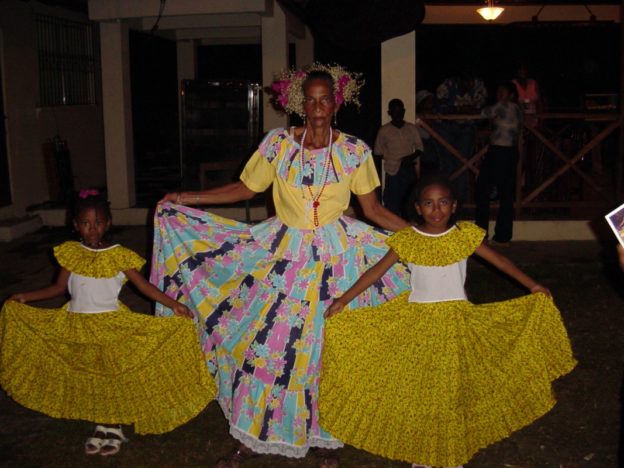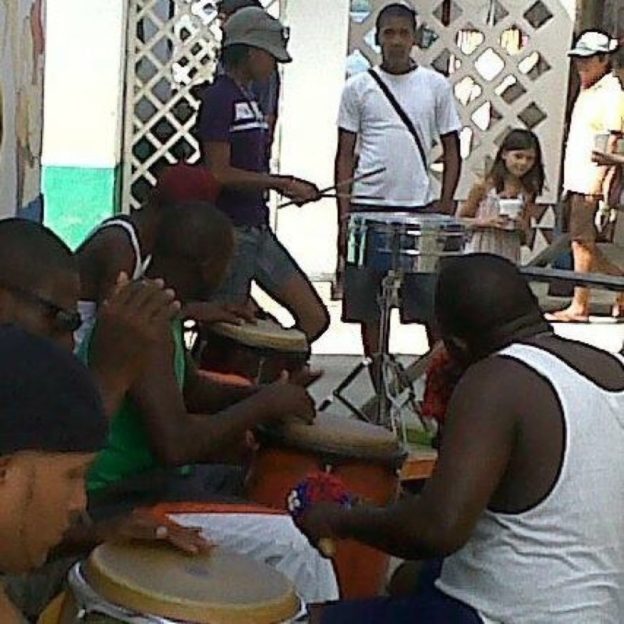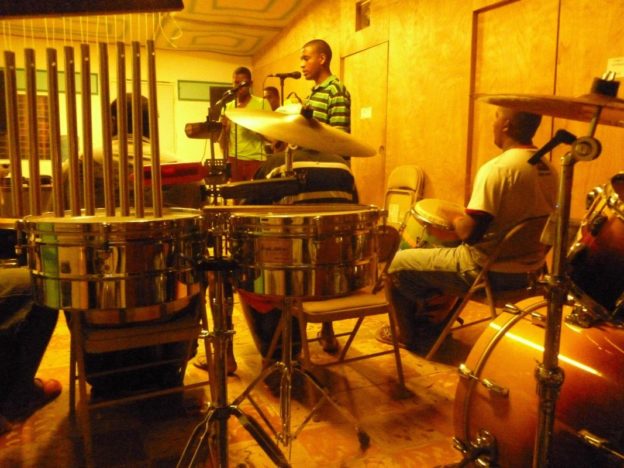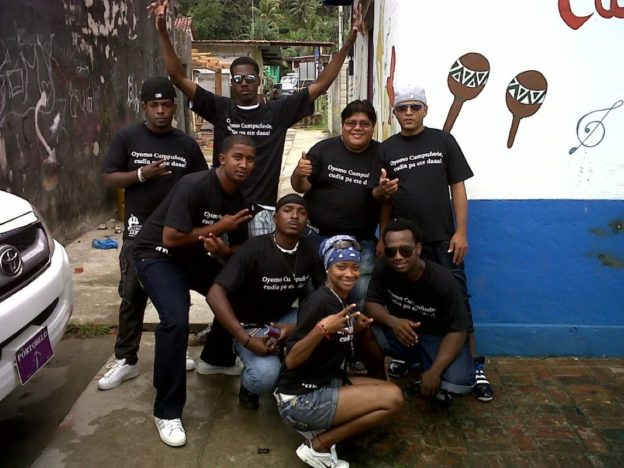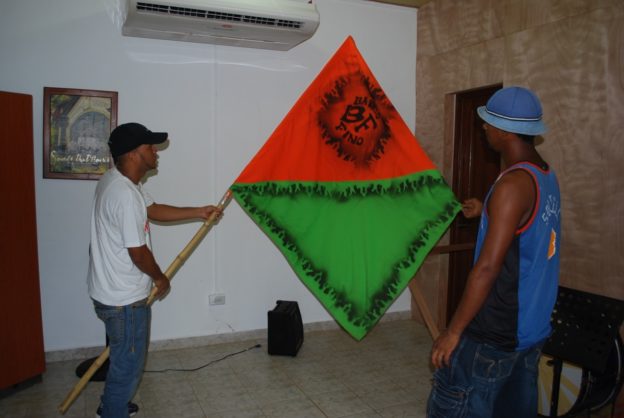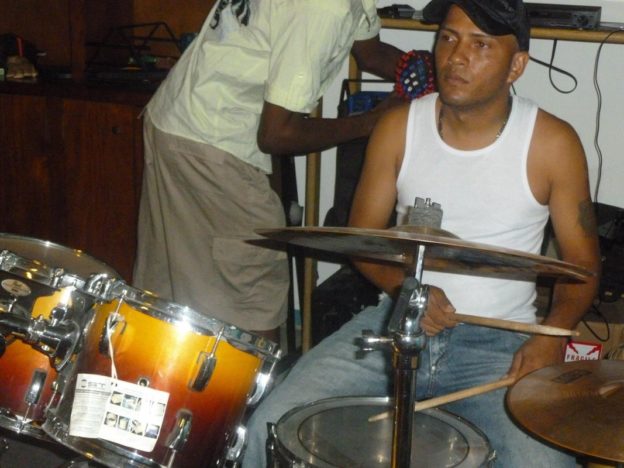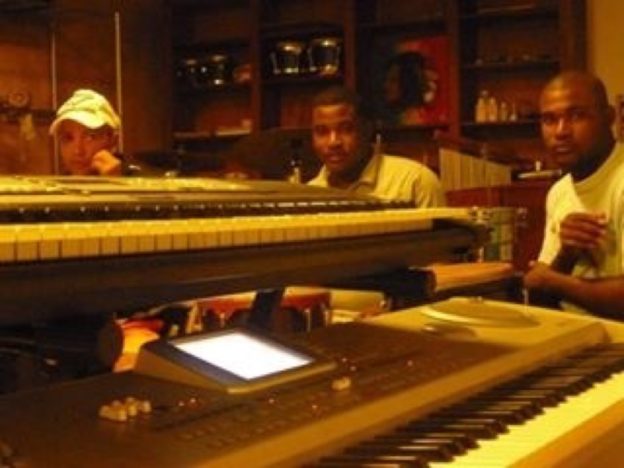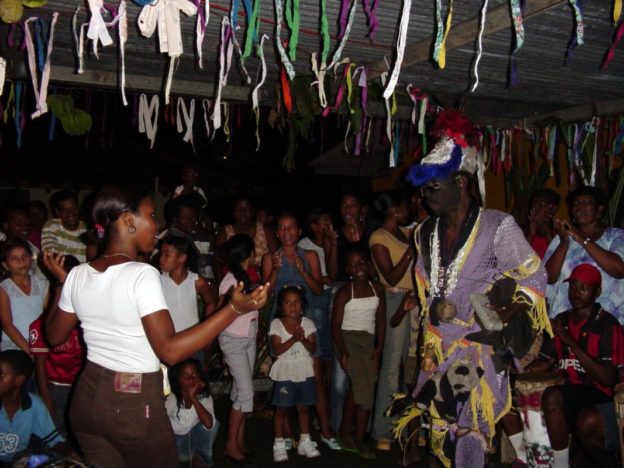In this excerpt, Maestro Andrés discusses the beauty of the Congo tradition, its relationship to the history of the town and other cultural practices associated with the town. This interview was recorded using a cassette tape. At this point in the recording, the tape appears to have sped up causing distortion.
Gustavo Esquina and Angelo Esquina discuss what they find unique about Barrio Fino and how they initiated their participation in the group.
Gustavo Esquina and Angelo Esquina discuss what motivates them to stay involved with Barrio Fino; each share a favorite memory.
Gustavo Esquina discusses Barrio Fino as the continuation of several cultural innovations that have been happening in Portobelo over the past decade.
Heraldo Eucebio De Hoyos, Abdiel Valdez, and Eric Blanquicet introduce themselves and talk about their relationship to the group as well as the town.
Heraldo Eucebio De Hoyos, Abdiel Valdez, and Eric Blanquicet discuss the meaning of the name “Comparsa Barrio Fino.”
Heraldo Eucebio De Hoyos discusses how the group started and how he approached the music school to help supply the group with instruments.
Heraldo Eucebio De Hoyos and Abdiel Valdez discuss the number of members and types of instruments that make up the comparsa. Comparsa Barrio Fino is unique in that it incorporates the spectrum of instruments one would find in a Latin orchestra.
Eric Blanquicet maps the history of the comparsa sound in Portobelo through its origins in Santiago de Cuba and history in Panama. In doing so, he shares how the group based the sound on comparsa traditions in Colon but shifted it to better represent the uniqueness of Portobelo.
In this excerpt, Maestro Andrés discusses his participation in the tradition and the negative ways in which some members his parents’ generation, newer community members, and outsiders sometimes viewed the Congo tradition in the early twentieth century prior to the advent of “the road.”
